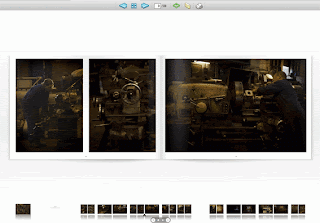
Clive concludes that the tactile sense of a twitter community is simply too much fun, too useful — and it makes the group more than the sum of its parts. In fact while using twitter and consorts, you are creating a shared understanding larger than yourself.
I mostly agree with his conclusion, but although Clive says he thinks it works best with friends (monitoring the lives of total strangers is fun but doesn't have the same addictive effect.), I tend to think it works with all groups as long as they have an interest in one another and … that triviality adds to their overal informal learning process.
And my gut tells me that this triviality is just what stimulates informal learning. Without any trivial information I do not connect. I mean, I do not connect to my computer, unless it has a strange glitch from time to time that I like. The same with my cats, it is just that little bit of personal information that does it and that makes me want to know more about that person or situation.
In marketing it is a well known fact that word of mouth sells much more products, or is much more trust worthy then reviews or scientific reports. There are a lot of factors that influence our judgement, but I think sharing triviality sooths our inner mind. And ones our mind is in a more trustworthy mood, it becomes more open to learning.
Microblogging, just like chatting gets sometimes dismissed as superficial and mainly irrelevant. But, if these small pieces of information ease our mind and opens it up for information, trivial exchange of information becomes much more useful.
Miraz calls it real life human connections.
On the other hand too much trivial information just numbs my mind. But how can I make sure the best equilibrium between triviality and relevance to keep my mind in optimal informal learning form?
(Cartoon by Nick D Kim, nearingzero.net.)










